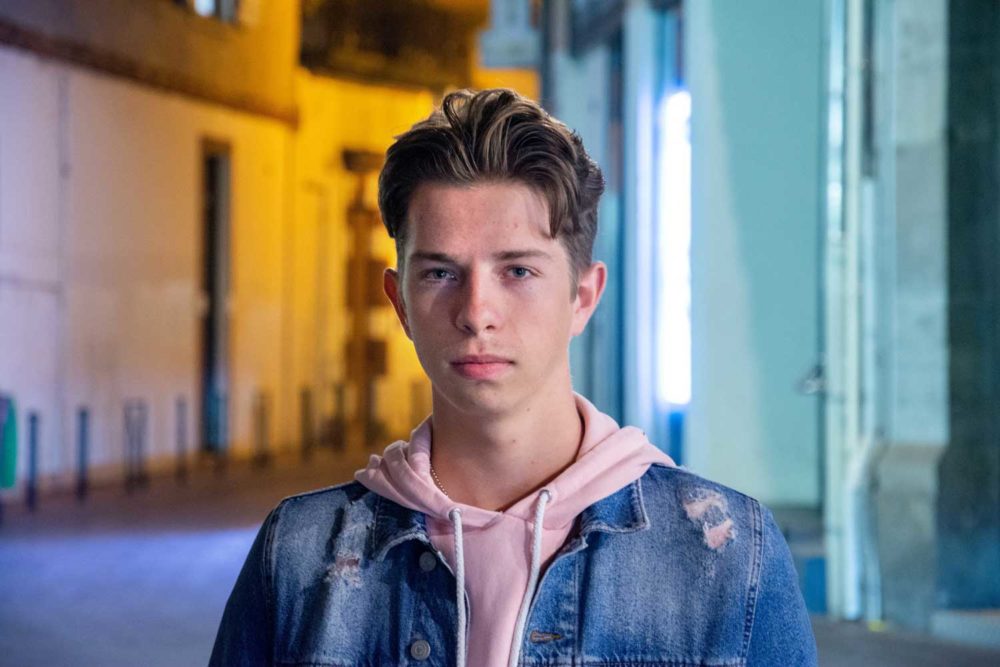
Listen To The Teenagers
8th Nov 2019
Something is happening to our teenagers and we, the adults, need to start listening. I have a background in secondary schools as I have only recently left the classroom in order to follow my psychotherapy and counselling career on a full-time basis. Over my teaching career, I have seen a massive shift in what is troubling young people. It is far too easy to lay the blame on social media. Frankly, I am bored of hearing that as THE reason behind the difficulties our young people are having. We need to look beyond that and ask ourselves: what is really going on?
I see many young people in my private practice. Not one of them has revealed that social media is a problem. Yes, they all use it. Some more than others. But not one of them has mentioned that it is a contributing factor to why they are seeing me in the first place. I even had one client tell me that social media is what allowed them to connect with their peer group and it helped to minimise a sense of isolation.
So what is bothering them? What are they finding difficult?
The recent Extinction Rebellion activity has certainly made some of them sit up and think. I have a few young people where they are struggling with suddenly becoming aware of the world around them. We are currently going through rather toxic political times both nationally and internationally and the youth are feeling it. The teens I see had no say in the referendum and yet they are now voicing their concerns about what they see as the potential results of it. They are watching the news and reading the papers and are finding the world a very scary and uncertain place. I applaud their enthusiasm and willingness to engage. But at the same time, they seem to be ill-equipped to deal with what they are seeing and reading. They feel totally out of control with no sense of autonomy and security
Then there are others who I see are finding the school environment very tricky. The pressure on them to achieve top grades is immense. They are told over and over how important grades are if they want to get somewhere in life. Yet some of them do not seem to be getting the support they need, emotionally, to deal with a very demanding school day. I see some children from high achieving schools where the amount of homework they get can only be described as brutal. These kids are at school from 8.30 – 3.30; some of them then have activities and might only get home after 5. And then they sit with another 3 – 4 hours or homework. (How they find the time to be obsessed with social media with this kind of routine, is beyond me.)
One child was given about 10 hours of work per subject to complete over the summer holiday. And that was before starting year 8! She came to me exhausted and stressed. And she was meant to be on holiday. I have no idea what her school was thinking. But her mother felt powerless to tell the school that her daughter would simply not do the work. Sadly, on following up with this family, it appears that all that work was not marked on the return to school. One has to wonder: what exactly was the point?
For those who have Special Educational Needs such as dyslexia, the current emphasis on spelling, grammar and punctuation across the subjects, not only in English, makes them feel as if they have failed before they even start. In subjects like English Literature, the pupils now have to learn quotes and spit them out in the exam. For most, this means having to buy study guides where someone else has mined the texts for them and picked out quotes. Where is the learning in this? It reduces what should be a rewarding and interesting experience of literature, into a rote learning and mundane box ticking exercise. And the dyslexic finds this particularly difficult and stressful.
I am a Human Givens therapist and at the core of our practice is that we all have emotional needs and that when these needs are not met, we are at risk of mental and emotional instability. The Human Givens model lists the following needs:
- Security
- The giving and receiving of attention
- Control
- Community
- Emotional connection
- Privacy
- Status
- A sense of competency
- Meaning
Part of my job working with young people is to help them realise which of these needs are not being met and then show them how to get them met in a meaningful way. There are certain things they will have no control over. But being able to recognise these and then manage how they react to this becomes important. We cannot control our politicians but we can choose how we react to the decisions they make on our behalf.
And for teens, this approach works. They are able to find a more stable equilibrium. Even when they feel that home, school and the world around them is difficult. Teaching them coping skills and helping them build on their innate resources becomes a very rewarding experience for both of us.
–
This is a Guest Post by Pat Capel.
Pat is a Human Givens Psychotherapist in private practice at Brighter Spaces Islington.
